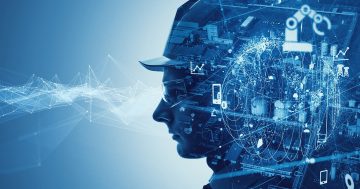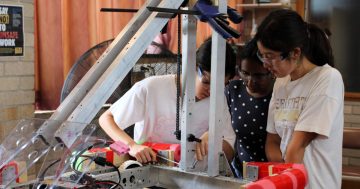Valerie Bolden-Barrett and Morgan Fecto* say that a new study suggests employees are more on board with the future of work than managers think.

Photo: metamorworks
While executives doubt workers’ ability to adapt to the future of work, employees are focused on the benefits of change and eager to learn new skills in preparation, according to a Harvard Business Review (HBR) Project on Managing the Future of Work study done in partnership with Boston Consulting Group’s (BCG) Henderson Institute.
According to the 2018 survey of 11,000 workers and 6,500 business leaders, employers can tap into their workforce to meet disruption head on.
It identified the following sources of change, among others: new technologies that replace or augment human labour; increases in the demand for skills, knowledge and education needed to perform work; changing employee expectations, such as flexible work schedules for work–life balance and more autonomy; shifting demographics and workforce diversity; changing work models including the rise in remote, temporary and contract work; and regulatory changes, like “robot taxes.”
HBR recommended that employers prepare for the future of work by: 1) creating a learning culture; 2) engaging employees in the shift rather than “herding them” through the process; 3) expanding the talent pool by training employees; 4) partnering with third parties to deepen the talent pool; and 5) managing “chronic uncertainty” by monitoring and experimenting with emerging trends.
It appears there may be hope for aligning employers’ and workers’ views on preparing for the future of work.
Both are responsible for coping with inevitable workplace disruptions, and HR leaders can take an active role to ensure that technology drives change without sacrificing the human element that’s central to keeping organisations running.
Recent data have shown talent pros much about what automation could mean: Some have found that highly automated organisations lead to more productive and creative workers, others see automation as an opportunity to hire more humans and still others are preoccupied with the cost of retraining employees to work in a highly automated environment.
Speculation and research are likely to continue, but HR can keep in mind that human decision-makers have the power to determine what the future of work will entail for workers and organisations.
In any outcome, learning and development programs will likely be necessary to prepare workers for the future.
Employees in the HBR survey said — as have others — that they are ready and willing to be upskilled for the future, and employers can meet that desire with programs that can engage workers while addressing important business needs.
Experts have recommended that learning programs be social, customisable and relevant.
However, spending on learning may require a change in outlook.
“I believe business needs to stop looking at employees as a cost centre and realise they are an investment,” Ellie Bertani, Director of HR Strategy and Innovation at Walmart, previously told HR Dive.
“Training them is an investment that will pay dividends in the future.”
* Valerie Bolden-Barrett is a business writer and content specialist and contributor to HR Dive.
Morgan Fecto is Associate Editor of Industry Dive.
This article first appeared at www.hrdive.com.











